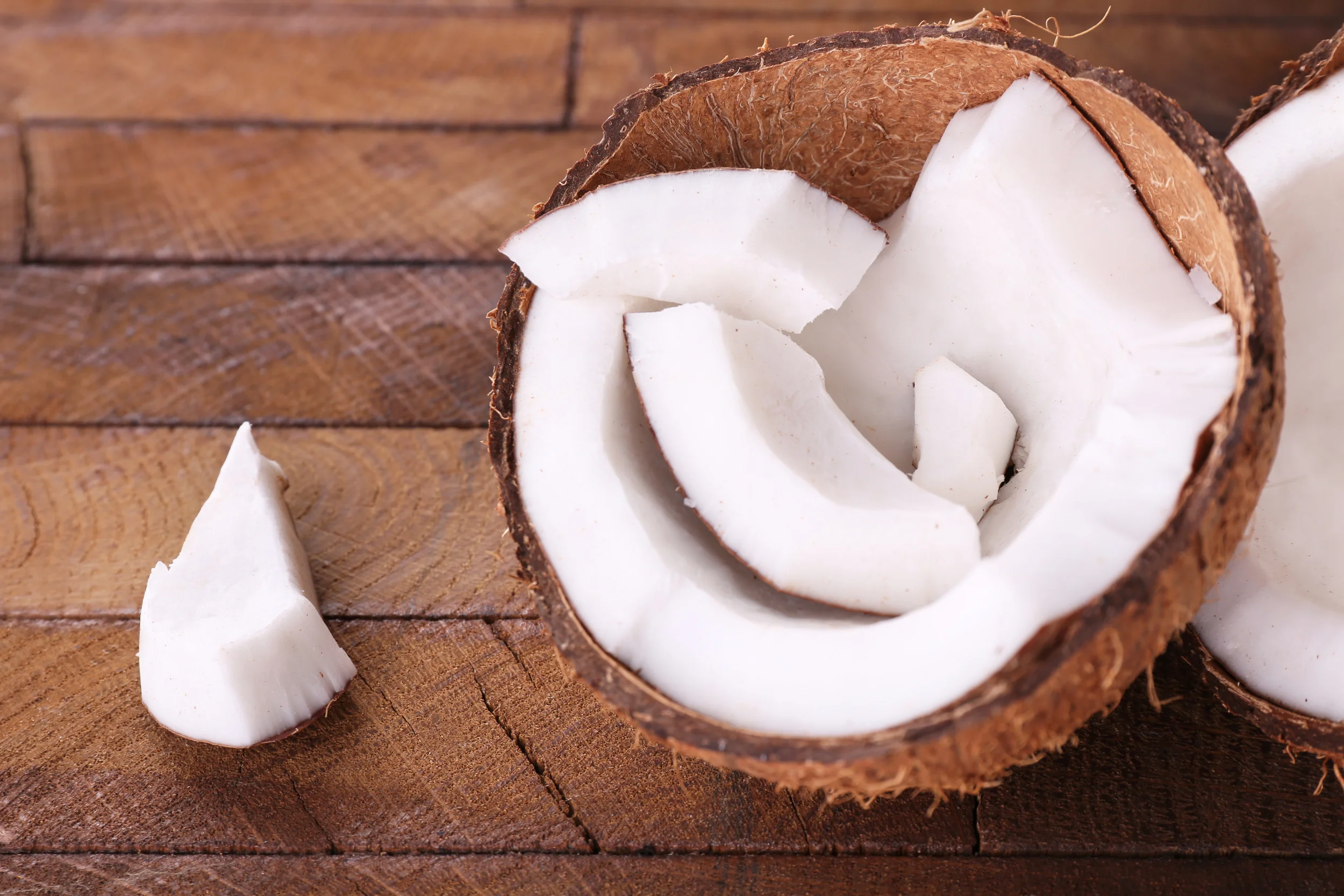You may have noticed that coconut flour has increased in popularity over the past year or so as people begin to learn more and more about its nutritional benefits. Coconut flour is made from dried and ground coconut meat. So it’s not really a ‘flour’ in the way we normally think of it, as it isn't made from traditional grains. Coconut flour can be used as a healthy gluten-free and grain-free flour alternative, making it a favourite amongst those that are sensitive to gluten or wheat or for those that follow a Paleo and/ or Vegan way of eating.
Coconut Flour Nutrition Benefits
High in Protein
Did you know that coconut flour contains 5g of protein in 2 Tbsp!
High in Fibre
It contains 6g of fibre in every 2 Tbsp of flour.
Nourishing Fats
Coconut flour contains 4g of nourishing fats (coconut oil) in 2 Tbsp. Coconut oil is incredibly potent as it’s not only anti-microbial, anti-fungal, anti-bacterial and anti-inflammatory, it’s also high in metabolism-boosting medium chain fatty acids.
Low GI & Helps Maintain Stable Blood Sugar Levels
When using coconut flour in baked goods with a sweetener or fruit, the overall GI of the baked good will reduce because coconut flour contains quality protein and fat that help maintain healthy blood sugar levels.
Heat Stable
Coconut flour contains some coconut oil which is rich in saturated fats, making it more heat stable and a great flour for baking.
Doesn’t Contain Phytic Acid or Enzyme Inhibitors
Grain flours contain phytic acid which is a substance that binds to minerals and prevents your body from utilising them. Additionally, nuts and seeds (if not prepared properly) contain harmful enzyme inhibitors which stress the digestive system, particularly the pancreas which is responsible for secreting enzymes. Coconut flour contains no phytic acid and only trace amounts of enzyme inhibitors so it doesn’t require any extra preparation (ie; soaking, activating or fermentation).
A Little Goes a Looooong Way
Coconut flour may seem pretty pricey at first; however a little really does go a long way. Once you start cooking with it, you'll know what I mean!
Coconut Flour Tips and Tricks
Baking with coconut flour almost always requires eggs. Unfortunately if you are egg free, egg replacements like chia seeds or flax seeds don’t work as well, as the eggs are natural emulsifiers which provide structure and act as a binding agent for coconut flour baked goods.
Always sift coconut flour when using it in recipes so the mixture doesn’t turn lumpy.
When scooping flour into a measuring cup, don’t pack it down, just use the flour ‘loosely’ otherwise your baked goods will turn out incredibly dense.
Store in the fridge or freezer in an airtight container to extend the shelf life further, and to keep it super fresh.
Because coconut is pure and free from common digestive irritants, artificial additives, preservatives and other dubious ingredients, the benefits of coconut flour can be embraced by those who have nut, wheat or gluten allergies, insulin sensitivities or those with digestive disorders.
Coconut flour can be used in both sweet and savoury recipes. You can use it in cakes, muffins, cookies, banana breads, slices, pizza crust, a GF coating on meat, savoury breads, fritters and even pancakes.
One of my favourite ways to use coconut flour of late is in my Gut Healthy Coconut Pancakes.



